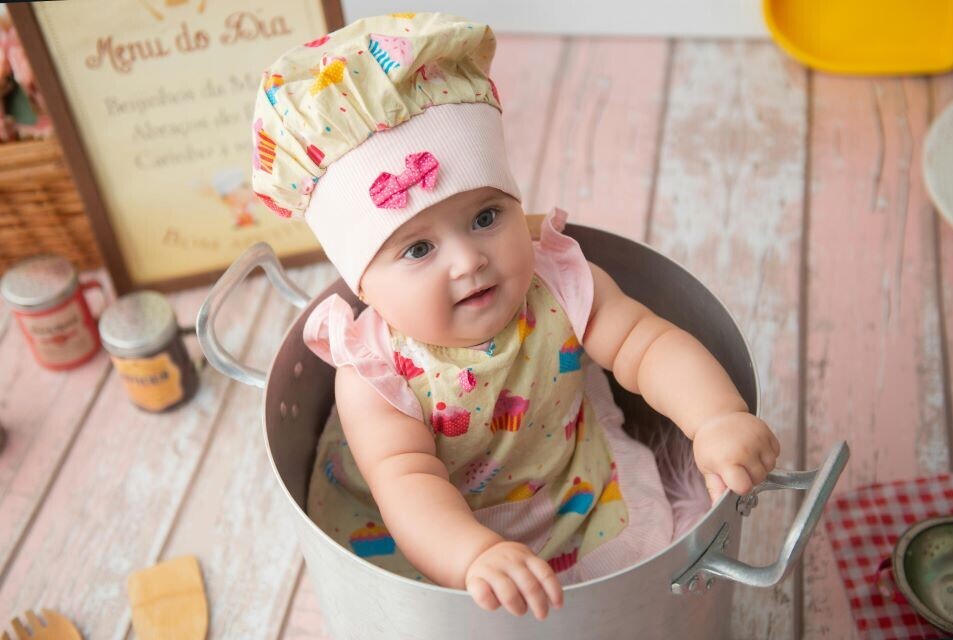
Autonomy in Child Development
The trend in your child’s development is toward greater autonomy. As she grows older, that factor will become a source of stress for you, but in infancy, all autonomy is welcomed. To your child, the environment is a source of wonder and exploration. It presents him things to be explored and skills to be mastered. There is no lack of motivation for action in the infant who is developing normally.
Developmental Milestones Categories
The cognitive milestone skills your child will be developing are grouped into categories of time. This blog discusses the category, 5-9 months. We will discuss all the areas of development (cognitive, language, social/emotional, and physical) that occur during these months.
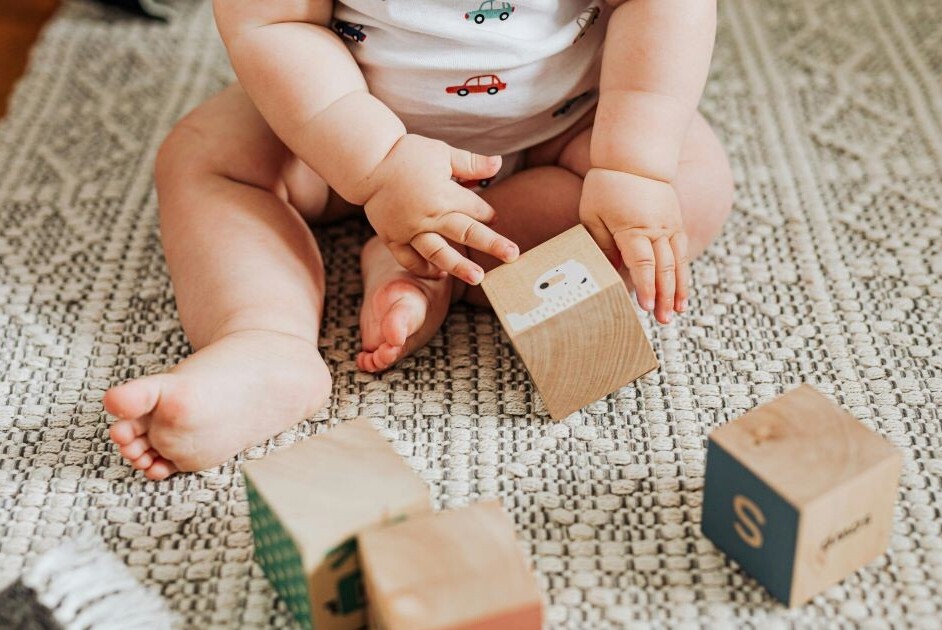
Infant Cognitive Developmental Milestones
At month five, your child is beginning to assert herself. She has some experience and begins to show that by distinguishing between strangers and familiar people. Her brain is beginning to categorize her experiences. Before, he responded basically to the sensory characteristics of the objects he encountered. But with five months of experience, a new world begins to emerge. This new world is more abstract. For example, she responds to more than the sensory characteristics of things. Objects are now enveloped in an invisible film of abstraction. This is a new experience of the world for your child. Now the world is becoming more than things to see, hear, smell, taste, and feel. The world presents a new dimension to your child. Your child’s rich store of sensory information is beginning to be organized into groups. This organization of information will continue throughout her life.
At five months, you child will develop the ability to brings things to her mouth. She quickly discovers that some of these things can be eaten and some can’t. At five months, her brain begins to associate all those objects that can be eaten. He begins to develops a category of “things that can be eaten.” This organization of your child’s experiences is a major leap in her cognitive development.
This organization of information is fueled by your baby’s growing autonomy: his developing ability to independently obtain new information. This autonomy is exhibited in her new ability to pass an object from one hand to the other. Your child is working on coordinating his hands and his hands with his eyes. These are foundation skills that will support her ability to explore her environment and acquire increasingly more details about that environment. During this time you will want to provide many opportunities for your child to grasp and handle many different objects of differing sizes, shapes, and textures. The different objects your child handles builds her experiences of form, shape, and texture.
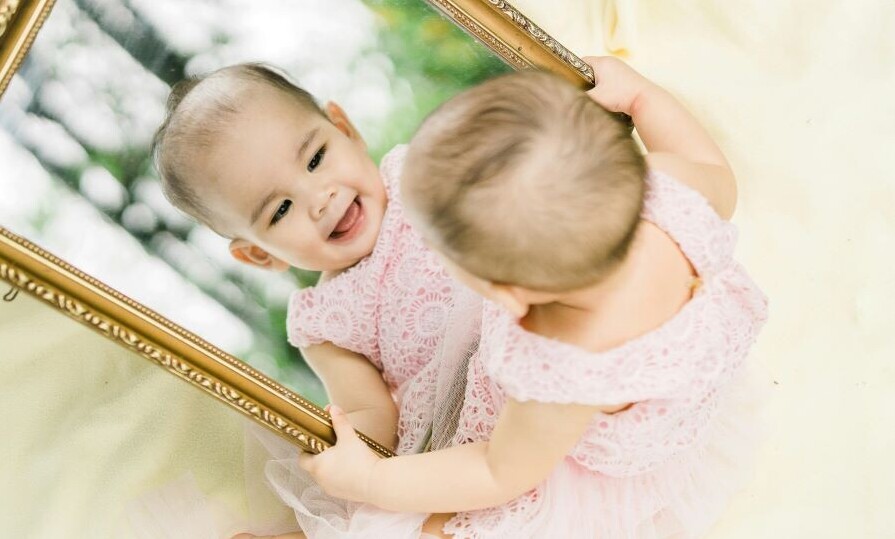
Social Emotional Milestones Early Childhood
One thing your child’s brain is doing in its develop is integrating the different areas of development. The different areas support each other. Cognitive and language development support social and emotional development, as do the motor skills. For example, social development depends upon the child’s ability to control his head movement and to look into the eyes of others. This ability involves not only head movement but eye movements. To develop both social and emotional skills requires the ability to recognize faces and distinguish familiar from unfamiliar people.
A big discovery for every child is the image of themselves. This is a very important category of one called the self. The child must experience herself if she is to experience the world. It is from herself that she will experience and characterize the world. What if that experience is negative? How your child experiences himself will influence his understanding of his world for the rest of his life. Seeing himself in a mirror and feeling good about that image he sees is one of the most important gifts you can give your child.
You will notice that your child begins to act differently with unfamiliar people. He may hold back and cling to you more than usual. He will be less responsive to this person. You will have to prompt your child to interact. This is a result of the integration of cognitive, social, and emotional development. Your child’s social world is filled with people, but they do not all have the same value for her. Your child is developing different social responses. She does not yet recognize unfamiliar people as strangers, but she knows they are different. She hasn’t seen them before. This requires an emerging memory and the cognitive ability to organize these memories into different groups.
With these new cognitive and social skills, your child will begin to associate different emotions with these different groups she is forming. His different basic emotions will begin to develop gradations that will vary in intensity and feeling. For example, his feelings for mother and father will be much more joyful than his feelings for an unfamiliar person. Through your own responses to different situations, you teach your child how to emotionally respond to these situations. Letting your child experience you responding with positive emotions to a variety of daily life situations is very important in teaching him that the world is a safe place for him. Be aware of the emotions to which you are exposing your child. Name a variety of emotions for your child to help her distinguish them.
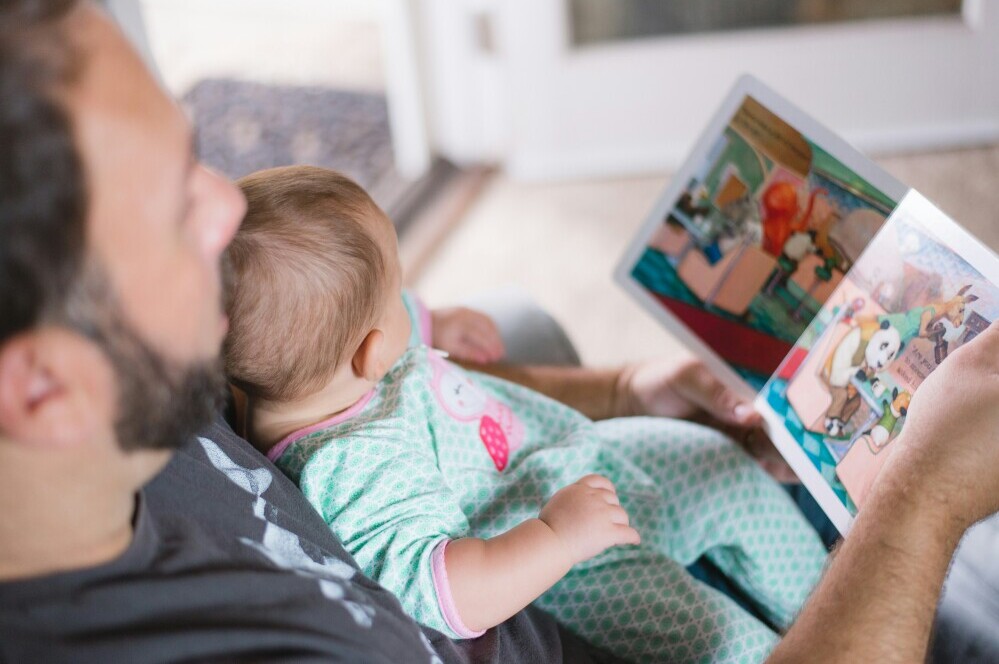
Language Development Milestones Infants
One of the first signs that your baby is beginning to unlock the meaning of the words that you are speaking to him is his own responses to his name being said. It may be only a glance at the person who is saying his name, but this is significant in his language development. Thus, when you talk to your baby from day one use her name. This will help her develop a sense of herself. Your baby’s language development will also begin to expand beyond using crying as a means of communicating her wants and needs. You will notice that she is beginning to say some of the letter sounds in the words you are speaking to her. This is a very simple type of imitation, but it is an important tool your baby will use to learn language. Talk to your baby. Children who are not spoken to do not learn to talk or are delayed in their speech and language development.
During her first three months of life, your child has used one type of communication. She has used the sounds she makes which includes her crying. She has reached for objects she sees and touched objects, but she has not used these actions for communication. In the fifth month, your child will notice that her actions can get other people to do things for her. Thus, her actions acquire a new function: communication. He will begin to use gestures. Gestures are more than mere physical actions. They are physical actions with meaning. This additional function is very important for your child’s language development. At this stage, responding to your child’s use of gestures will help him develop both his communication and language skills. When you speak to your child, you should accompany your speech with gestures whenever possible to model gestures for your child.
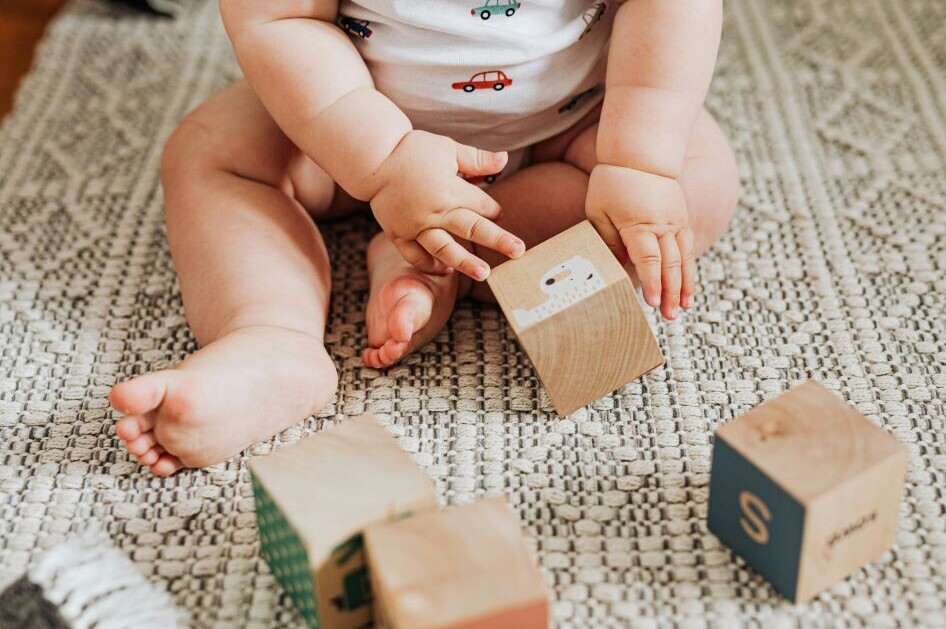
Movement Development Milestones
By the fifth month, your baby’s skill set is making it possible for her brain to begin constructing a world beyond herself and you. In language development, he is beginning to recognize sounds that are spoken to him. He uses gestures and his own vocal sounds to communicate many of his wants and needs. His ability to move plays an important role in extending these skill sets into his immediate environment. He doesn’t walk yet, but with some physical support, his legs will support much of his body; he will begin some of the things his legs can do, such as bouncing when supported upright. Your baby gains additional awareness of her body by turning from her back to her stomach and from both sides of her body. Above, you learned about the emergence of categories. You see new categories such as right and left beginning to develop with her ability to turn from both sides of her body. Another important movement skill that is developing is your child’s ability to sit without support. This important skill allows your child to view his physical and social environments with much more independence.
The amount of information about the environment will be greatly increased through these skills. Give your child many opportunities to sit and view a variety of situations filled with differing sensory experiences. For example, taking your child outside to just sit on the lawn will flood his senses with new sights, sounds, smells, and tactile experiences. Support your child while she bounces on a variety of different surfaces. She will feel the different supports these surfaces afford her. As an adult, you have long forgotten the exciting experience of rolling your body from side to side and the way different supports feel. A mattress supports your body differently than the floor. Rolling in the sand on a beach or in grass on a lawn is yet different. The firm foam of an exercise mat is yet another support for your baby to explore with her new-found movement of rolling.
Infant Development Activities
Your child’s development needs your participation to be developed to the maximum extent possible. There is development and there is enrichment of development. Enriching your baby’s skills doesn’t require hours of interaction with her. During the first year of life, your baby can’t manage many repetitions of a movement. Neither does she have the attention to stay focused on a single action or experience. Don’t think of yourself as a “developmental coach.” You are her parent. You are sharing your life with her. During his first year of life before your baby has developed many skills, it’s easy to forget to do that. The skills your baby is learning seem insignificant and not in need of practice. That is not true. While the skills that are developed during the first year seem insignificant, they are the foundation of your baby’s life. One of the most important things you can do for your baby is to provide many opportunities for him to practice those skills. Your baby needs a positive experience of those skill now as much as he will any other time in his life.